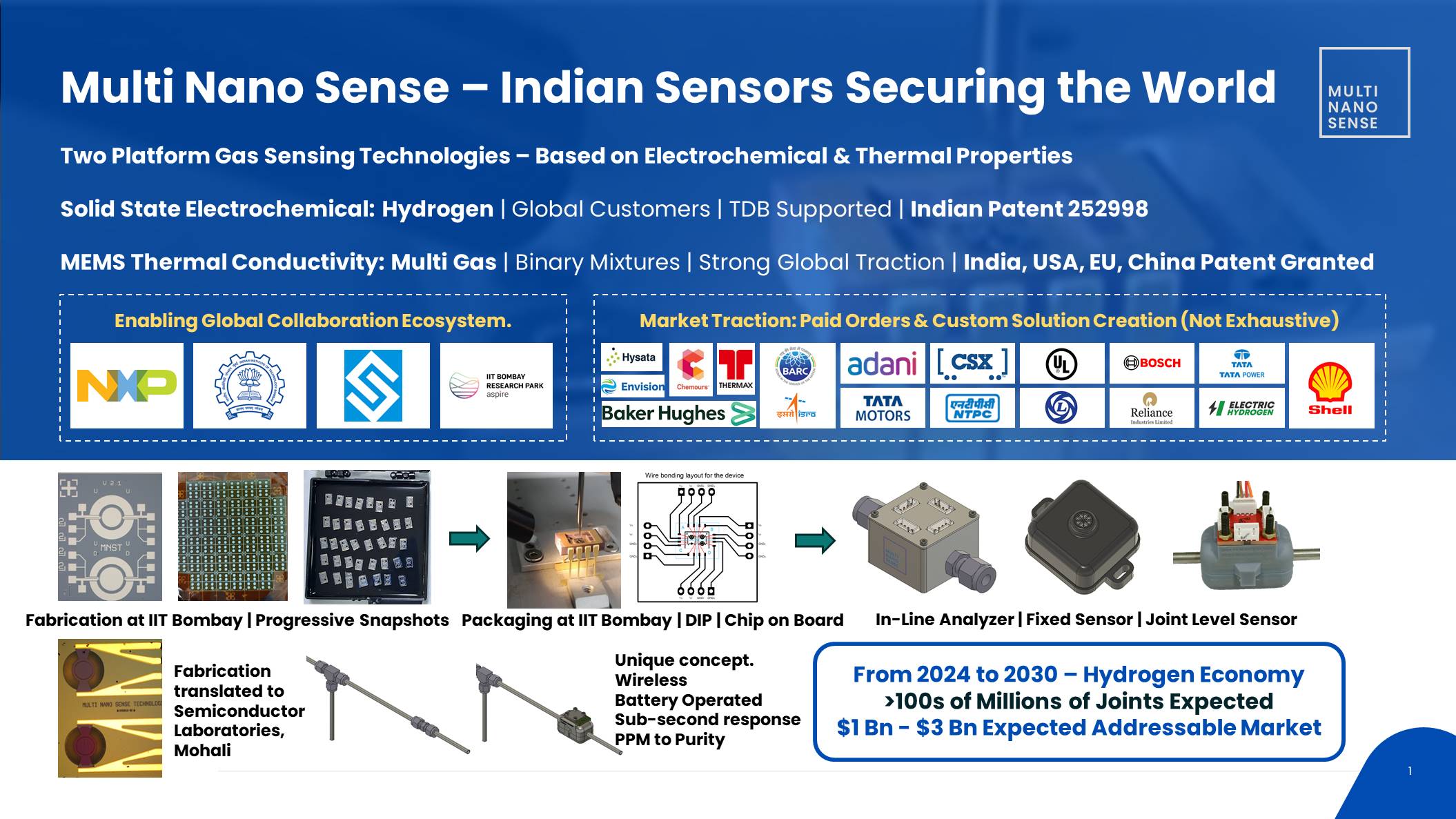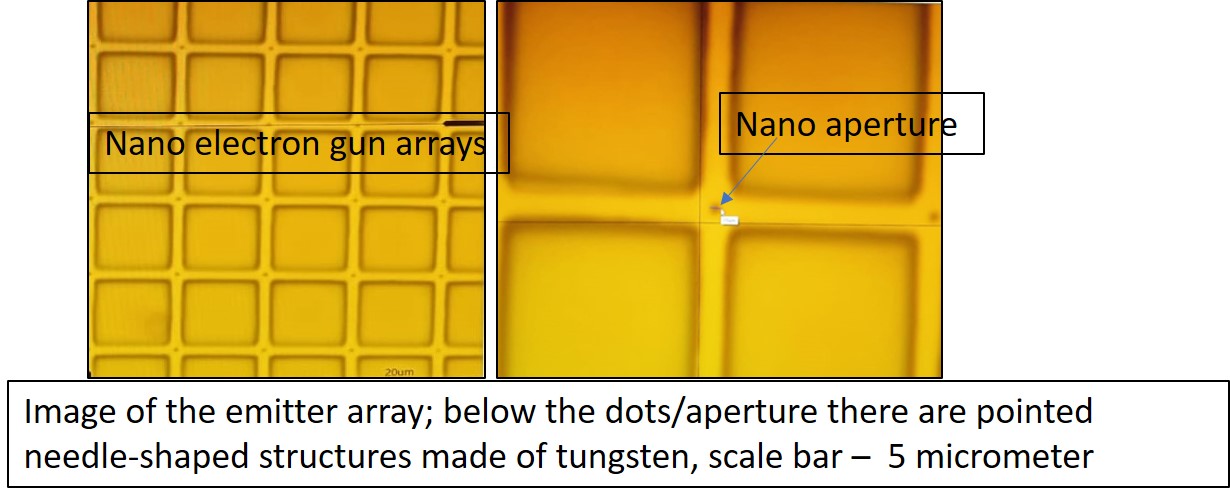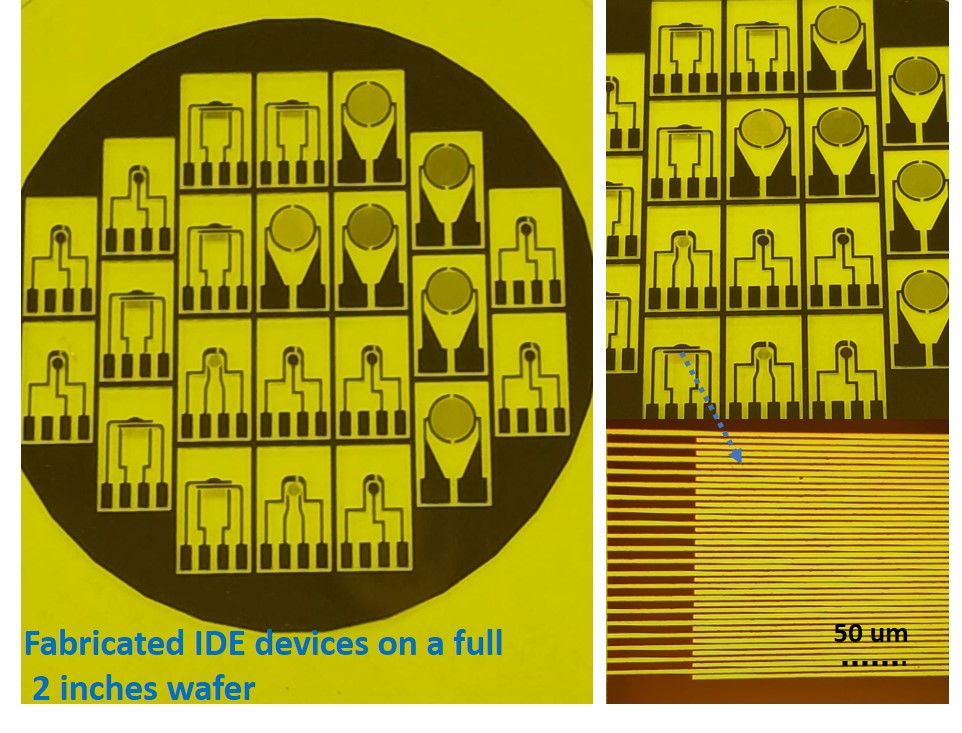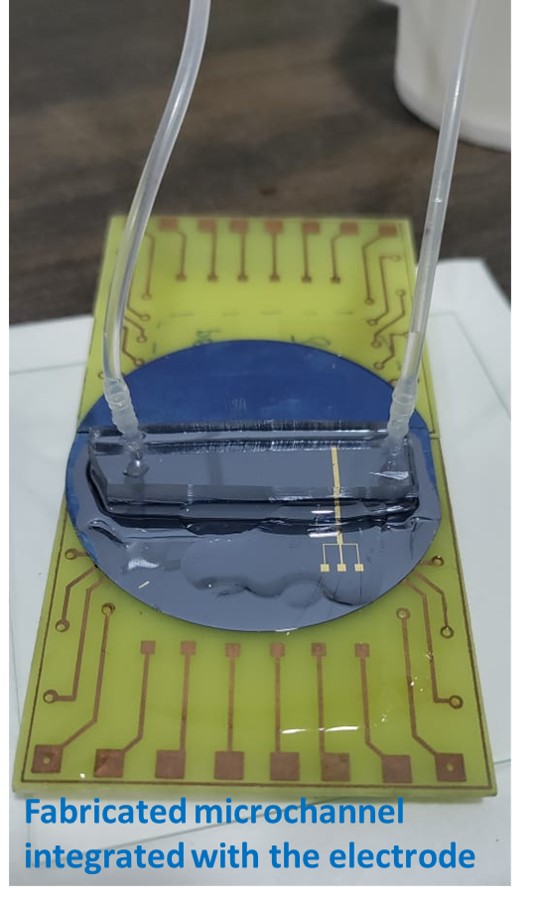
Startups
Policy on Startups:
The PMC will work with researchers whose work results in successful prototypes. These researchers will be encouraged into entrepreneurship by initiating them with the process to set up Start-ups/SMEs/MSMEs. This will be done by training them in intellectual property landscape, procedures for patent writing, trademark filing process etc. Specific focus will be given to those prototypes that can foster rural entrepreneurship. The PMC will also support and facilitate translation of the research prototypes from the selected projects.
- Eligibility
- INUP Partnership: INUP support to startups is intended for deep and long-term partnerships where the institutes provide extensive technical support to startups, including tools-time, staff-time, consultancy, and mentorship. In essence the startups would be “incubatees” of the facility, although they may not physically exist on campus. Therefore this can only be a select list - institutes can only support a small number of such deep and long-term commitments.
- Every supported startup should provide a half-yearly report, with the following information:
 A company that satisfies GoI definition of Startup (i.e. recognized by DPIIT as such).
A company that satisfies GoI definition of Startup (i.e. recognized by DPIIT as such).
 A well-defined R&D activity with incubation potential and intention, i.e. a ‘would-be startup’.
A well-defined R&D activity with incubation potential and intention, i.e. a ‘would-be startup’.
 While preference is given to startups, MSME are allowed with specific MoUs with the institute.
While preference is given to startups, MSME are allowed with specific MoUs with the institute.
 A startup that has been developed with support through MeitY programs is given priority.
A startup that has been developed with support through MeitY programs is given priority.
 Startups can be internal or external. There is no restriction on PI/co-PI of the INUP program in launching startups and seeking support.
Startups can be internal or external. There is no restriction on PI/co-PI of the INUP program in launching startups and seeking support.
 The startup will be recommended for support based on relevant factors, such as – the company profile, business model, alignment with the nanoengineering/ semiconductors domain, importance of nanofabrication facility support to their success, and so on.
The startup will be recommended for support based on relevant factors, such as – the company profile, business model, alignment with the nanoengineering/ semiconductors domain, importance of nanofabrication facility support to their success, and so on.
 Startups applicants must state their technology missions, R&D goals, etc. which would be furthered through this support. The Institutes will assess if these are aligned with the INUP mission: viz. enabling nano innovation and manufacturing in India. The Institutes will also periodically review the progress of the startups, and reserve the right to terminate the support agreement if their goals are found to have changed, or if the utilization of the support provided is found to be grossly unsatisfactory.
Startups applicants must state their technology missions, R&D goals, etc. which would be furthered through this support. The Institutes will assess if these are aligned with the INUP mission: viz. enabling nano innovation and manufacturing in India. The Institutes will also periodically review the progress of the startups, and reserve the right to terminate the support agreement if their goals are found to have changed, or if the utilization of the support provided is found to be grossly unsatisfactory.
 The partnership between the Institute and a startup will be backed by a MoU that explicitly mentions details like IP sharing, equity sharing, and right/ responsibilities on both sides.
The partnership between the Institute and a startup will be backed by a MoU that explicitly mentions details like IP sharing, equity sharing, and right/ responsibilities on both sides.
 Herein the institutes may claim some form of compensation (such as equity, consulting project, licensing fee, etc.) for IP that is made available to a startup – the details are to be worked out between the institute and startup.
Herein the institutes may claim some form of compensation (such as equity, consulting project, licensing fee, etc.) for IP that is made available to a startup – the details are to be worked out between the institute and startup.
 Indicating how the facilities usage or technical support has helped.
Indicating how the facilities usage or technical support has helped.
 Related patents/ publications.
Related patents/ publications.
 Funding received after the onset of INUP support.
Funding received after the onset of INUP support.
 Future plans for facility usage
Future plans for facility usage
IIT Bombay
Please fill in the application form and send it to inupi2i.iitb@gmail.com
List of Startups

Multi Nano Sense Technologies
Year: 2017
Founder(s): Mr. Aftab Ansari (Senior Product Designer), Mr. Shashank Kumar (Co-Founder & Director).
About: MNST is a gas sensors company with patented innovations and demonstrated ability in taking core R&D from TRL 1 to TRL 9. Its vision is to manufacture the best and most affordable sensors in every chosen category of application.
Support: IITBNF fabrication and characterization tools.
Success: Collaborating closely with IITBNF and leveraging technology licensed from the University of Cambridge, they have successfully optimized fabrication of MEMS Thermal Conductivity Sensors in India.
With production scale-up now underway at Semiconductor Laboratories, Mohali, these sensors have undergone more than 4 months of testing at NXP Semiconductors and are being tested for large-scale applications, including Lithium-Ion Battery Thermal Runaway prediction.
Two Platform Gas Sensing Technologies:
- Based on Electrochemical & Thermal Properties
- Solid State Electrochemical: Hydrogen - Indian Patent 252998
- MEMS Thermal Conductivity: Multi Gas - India, USA, EU, China Patent Granted.
Visit Website

Eywa Neuro Pvt. Ltd
Year: 2021
Founder(s): Mr. Kaustubh Deshpande (Director and CEO)
About: Eywa Neuro Pvt. Ltd. is a MEMS (Micro-Electro-Mechanical-Systems) neurotechnology company that develops neural interface solutions for electrophysiology and life sciences. The primary objective of the company is to develop innovative implantable neural interface technologies that would begin to pave the way for researchers to interface with highly specific targets in the nervous system of rodents and non-human primates, to monitor (record) and stimulate (write) neural activity. Mumbai, Maharashtra, India.
Support: IITBNF fabrication and characterization tools.
Success: At Eywa Neuro, in collaboration with IITBNF under INUP, they have developed sub-15 µm flexible neural probes using thin-film MEMS technology. For reference, their devices are 50× thinner than the predicate, providing higher resolution brain mapping with minimal invasiveness.
The first product, E3 cortical, is a brain monitoring probe for epilepsy that enables surface brain mapping with high spatial resolution while minimizing invasiveness (requiring miniature craniotomies). These innovations address the need for detailed mapping (more recording sites to localize the seizure source) while reducing infection risk (tiny craniotomies).
The next line of products from Eywa will target deep brain recording and stimulation to address the treatment gaps for neurological conditions like Parkinson’s disease and psychological conditions like OCD, depression, and chronic pain.
Visit Website

Silicofeller Communications
Year: 2021
Founder(s): Mr. Manan Narang (Founder)
About: Silicofeller Quantum has reached the stage of a prototype design for the proposed superconducting quantum chip. The team of experienced quantum engineers and scientists at Silicofeller has meticulously designed the architecture of the chip, considering factors such as qubit placement, connectivity, and control mechanisms. New Delhi, Delhi 110024, India.
Support: IITBNF fabrication and characterization tools.
Success: Discussions regarding the design of a 4-qubit quantum computing chip have begun. The initial round of discussions on the design and material selection for Transmon superconducting qubits has been completed.
Visit Website

Exposome Private Limited
Year: 2020
Founder(s): Dr. Prerna Goradia (Founder)
About: Exposome's Technology Mission is to improve the quality of air, water, or wastewater discharged into the environment. Exposome introduced segment-first Regenerable Effluent/Emission Treatment Medias in 2022. With its team's innovations, it aims to produce useful by-products for industries to boost the circular economy. Exposome works with electronics companies to reduce their carbon footprints as well. Andheri East, Mumbai, 400059.
Support: IITBNF fabrication and characterization tools.
Success: Individual process optimizations are in progress. Findings will be used for finalizing PoC.
Visit Website

Tejase AeroSense Pvt Ltd
Year: 2020
Founder(s): Mr. Vinay Goda (Director), Ms. Jyoti Goda (Managing Director)
About: Tejase AeroSense Pvt Ltd is an Indian-owned company focused on the development, manufacturing, and marketing of sensors for aviation applications. It primarily focuses on sensors for measuring temperature, pressure, and displacement/rotation. Based in Mumbai, the company has close links with leading Indian academic institutions. Powai, Mumbai 400076.
Support: IITBNF fabrication and characterization tools.
Success: Pressure Sensor for Aeronautical Applications is currently in the simulation phase for finalizing the feature size and process flow.
Visit Website

Numelo Technologies Private Limited
Year: 2021
Founder(s): Prof. Swaroop Ganguly (Director)
About: Numelo Technologies Private Limited is at the forefront of cutting-edge technology innovation, specializing in the development and advancement of novel computing solutions and devices. Powai, MUMBAI 400076.
Support: IITBNF fabrication and characterization tools.
Success: Memory-Centric and Neuromorphic Computing architectures and MIM Device Development and Process Integration.

Tvashtr Biotech Pvt. Ltd
Year: 2023
Founder(s): Mr. Parth Shinde (Founder)
About: Tvashtr's mission is to provide both patients and healthcare professionals with innovative and trustworthy quick allergy testing kits. The kits use cutting-edge technologies, like antigen-antibody reaction using click chemistry, to provide quick results. The goal is to make at-home testing more affordable and practical while also enhancing how allergies are identified and treated. Jaipur, Rajasthan, India.
Support: IITBNF fabrication and characterization tools.
Success: Discussions regarding a microfluidic chip for allergic substance detection have been started. The initial round of discussions regarding the design of the microfluidic chip has been completed. Support has been provided regarding the know-how on microfluidic chip design.

Sristan Technologies Private Limited (Inertia Labs)
Year: 2023
Founder(s): Mr. Soham Yerandkar (Director & CEO)
About: Inertia Labs develops high power density electric motors powered by Rare Earth Elements-free Permanent Magnets, which are being developed along with revolutionary Axial Flux Motors for E-Mobility applications like EVs, e-Aviation, and robotics. Thane - 400606, Maharashtra, India.
Support: IITBNF fabrication and characterization tools.
Success: Development of high-performance motor technologies. Support for material transfer during individual process optimization.
Visit Website

Advanced Nano Fabrication Technologies (ANFT) Private Limited
Year: 2024
Founder(s): Mr. Angshuman Roy (Founder & CEO)
About: ANFT is an early-stage company pioneering next-generation lithography and mask-making technologies, addressing the limitations of current semiconductor manufacturing, which hinder improvements in energy efficiency, throughput, and resolution. By overcoming these barriers, ANFT aims to drive a breakthrough in semiconductor capital equipment, ushering an era of innovation across the industry. Ahmedabad, Gujarat 380051, India.
Support: IITBNF fabrication and characterization tools.
Success: Discussion is going on.
Visit Website

Technoculture Research Pvt. Ltd.
Year: 2020
Founder(s): Mr. Satyam Tiwary (Founder)
About: Technoculture is a leading Bio Instrumentation research and development company focused on revolutionizing the healthcare industry through cutting-edge pharmacogenomics-based drug testing, early disease detection using DNA analysis, and precise diagnosis of infectious diseases. Bangalore 560065, Karnataka, India.
Support: IITBNF fabrication and characterization tools.
Success: Initial discussions regarding novel IDE fabrication for measuring PAPP-A and Beta-HCG levels in a pregnant mother’s blood to assess the risk level of a fetus having chromosomal aberration, followed by assistance in designing the IDE. Currently, the first batch of IDE sensors is in progress, including detailed process optimization for 5 µm IDE on a quartz wafer.
Visit Website

NAMECS Technologies Pvt. Ltd.
Year: 2024
Founder(s): Mr. Pratik Mishra (Founder and Director)
About: NAMECS is establishing a new way of doing science—one driven by cutting-edge translational research and real-world impact, one that is self-sustaining and self-fulfilling. It works on advanced micro and nanotechnology-based low-cost medical diagnostics and sensing solutions utilizing cutting-edge fabrication techniques. NAMECS currently focuses on developing low-cost, portable, and miniaturized blood analysis systems to facilitate door-to-door sickle cell and CBC testing. Varanasi, Uttar Pradesh.
Support: IITBNF fabrication and characterization tools.
Success: Our flagship project—a low-cost, portable Complete Blood Count (CBC) device—is our first step toward bridging the gap between urban and rural healthcare facilities. This initiative aims to make basic diagnostic tests accessible to every individual.
The design and simulation of a novel electrode-integrated microfluidic chip for CBC have been successfully completed in close collaboration with IITBNF. The first batch of devices has been fabricated and tested, demonstrating successful microfluidic-based acoustic wave blood plasma separation.
Visit Website




